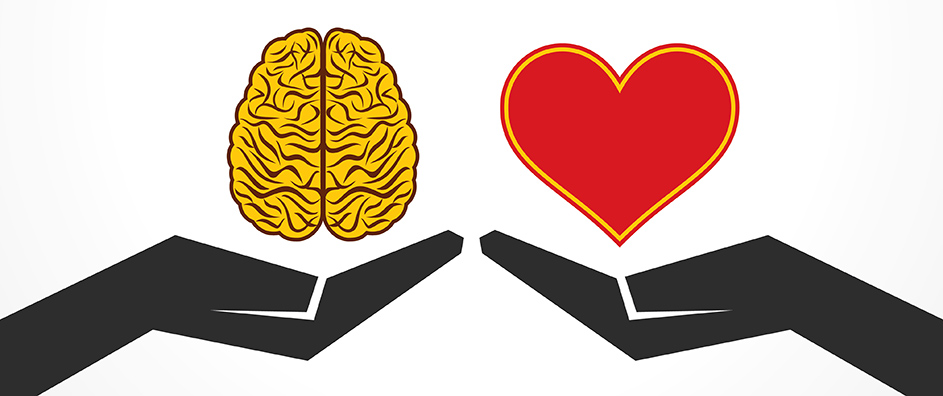In the intricate tapestry of human existence, the interplay between rational thought and emotional experience emerges as a profound theme. Often perceived as dichotomous forces, the rational and the emotional can illuminate a pathway toward comprehensive understanding and harmony. The teachings of the Baha’i Faith present an intriguing narrative: one that posits the potential for these two dimensions of human experience to not only coexist but to enrich each other in increasingly profound ways. At the heart of this exploration lies the essential question: can reasoning and feeling work in concert to elevate the human experience?
To understand the coexistence of rationality and emotion within the Baha’i framework, it is essential to first consider the nature of each element. Rational thought is often lauded for its clarity, objectivity, and the systematic way in which it addresses problems. It is the lighthouse guiding the ship in a storm, casting beams of illumination upon the dark waters of uncertainty. On the other hand, emotions are akin to the winds that fill the sails of that ship; they provide propulsion, direction, and urgency. Each component—rationality and emotion—has a defined role that is integral to the navigation of life’s manifold challenges.
Rationality serves as the backbone of human thought processes. It is the analytical lens through which we examine the world, enabling us to create structures of understanding that lend themselves to scientific inquiry, ethical reasoning, and moral philosophy. The Baha’i teachings underscore the imperative of reason, affirming its role in fostering knowledge through inquiry. The act of discerning truth is seen as a sacred responsibility, one that relies heavily upon the faculties of the mind.
Conversely, human emotions emanate from a profound visceral place within the soul. These feelings are not mere ephemeral experiences but rather deep reservoirs of meaning and motivation. The Baha’is affirm that emotions drive us toward empathy, compassion, and a sense of connectivity that transcends individual experiences. They form the bedrock of human relationships, allowing for nurturance and understanding. Emotions enrich our lives, adding layers of meaning that rationality alone cannot encapsulate. Without this emotional underpinning, rationality risks becoming stark, sterile, and devoid of the richness that flavors human existence.
Yet, the challenge lies in reconciling these two forces. The pursuit of pure rationalism can lead to a form of solipsism, wherein the richness of emotional tenderness is overlooked or dismissed. Conversely, unchecked emotionality can devolve into irrationality, clouding judgment and leading to misperceptions of reality. Herein lies the Baha’i ideal: a synthesis of these seemingly opposing forces. Just as light refracts through a prism, revealing a spectrum of colors, the harmonious integration of the rational and emotional dimensions constructs a holistic understanding of life.
Recognizing this harmonious integration requires a structured approach. This entails fostering an environment where rational discourse is coupled with emotional intelligence. The Baha’i teachings advocate for education that encompasses both academic rigor and emotional cultivation. This duality is vital for developing individuals who are not only knowledgeable but also compassionate—who can craft solutions that resonate on both intellectual and emotional levels. It is only through this synergy that humanity can hope to address the complex dilemmas of modern existence.
Additionally, the Baha’i perspective emphasizes the role of community in nurturing this coexistence. The communal fabric of Baha’i life allows for collective reflections where rational discussions and emotional expressions can coalesce. Through consultation, a fundamental principle in Baha’i practice, individuals engage in dialogue that respects both the rational and emotional contributions of others. This process elevates decision-making, inviting a diversity of viewpoints and fostering a deeper collective wisdom.
At the intersection of rationality and emotion lies a commitment to justice and equity. The Baha’i teachings affirm that true justice cannot occur in the absence of compassion. A purely rational approach may yield logical outcomes, yet without emotional engagement, such outcomes risk perpetuating inequality and human suffering. The case for integrating these forces is further solidified by the recognition that compassion informs a more just application of knowledge. It imbues reason with purpose, ensuring that the decisions made benefit the collective well-being.
Moreover, the reconciliation of rationality with emotional experience serves to enrich personal development. Individuals grounded in both rational thought and emotional understanding can navigate life’s complexities with grace and resilience. They become adept at recognizing the emotional currents that run beneath rational choices, leading to more authentic interactions and a more profound comprehension of self and others. This duality invites the possibility for growth, encouraging individuals to embrace vulnerability without sacrificing a steadfast commitment to truth.
In conclusion, the Baha’i teachings present a compelling invitation to explore the intricate interplay between rationality and emotion. Rather than viewing them as opposing forces, one can envision them as complementary components in the vast canvas of human experience. Just as a great symphony requires both melody and harmony, so too does the journey toward understanding require a deliberate balance of rational thought and emotional richness. It is through this delicate dance that humanity can forge a future marked by unity, compassion, and enlightened action.
